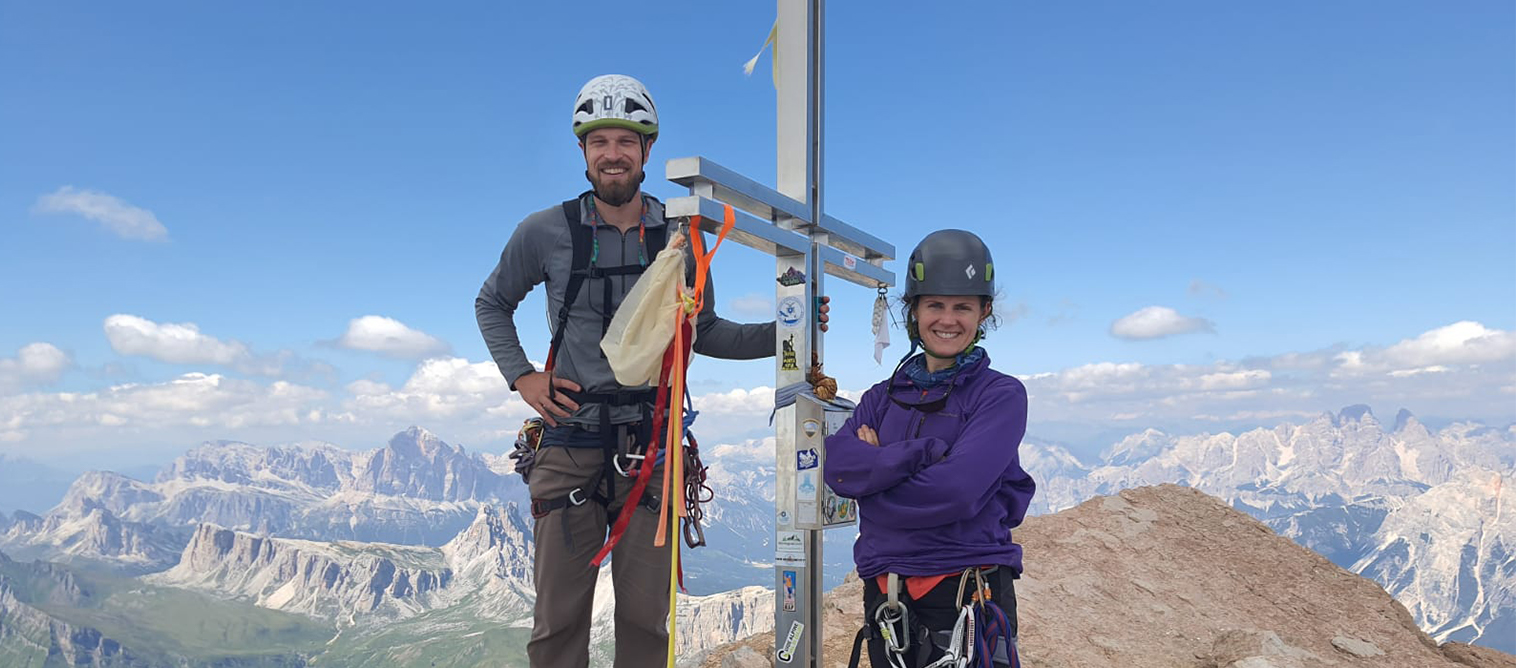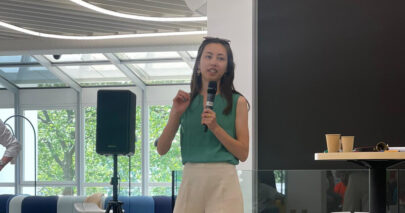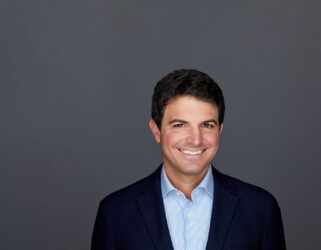
To work successfully in African healthcare takes persistence, talent, improvisation, and adaptability. It also takes a special kind of passion, belief, and moral conscience to see past the challenges.
Making an impact has always driven Elena Olivi (MBA 2016), Senior Project Leader at Open Capital Advisors in Nairobi, Kenya. “I’m an impact junkie,” she said. “Chasing it has seen me pivot in different directions which has always resulted in exciting opportunities.”
Born to Italian parents in the US, Olivi came from a family of doctors. “Medicine was always top of mind, but my dad advised that I could do more in public health because of its scale. Rather than individual patients, public health deals with populations.”
After graduating with a BA in anthropology from Princeton, Olivi began working at the NGO,
Population Services International, in Laos, South East Asia. “PSI/Laos worked with HIV and malaria, and when they asked me to rework their Malaria Strategic Plan, I discovered what became a lifelong passion for contributing to the control and elimination of such a terrible scourge.”
Small wonder that the malarial epicenter – Africa – called. In 2009, PSI sent Olivi to Kenya where she worked in the Global Malaria and Child Survival Department and eventually assumed responsibility for the global mosquito bednet portfolio. She grew PSI to become the largest distributor of mosquito nets in the world after UNICEF. “After vaccines, nets are a cheap, easy-to-use, and highly effective way to prevent malaria,” she said. “I became steeped in everything to do with large-scale bednet distribution campaings at WHO level, regional level, Ministries of Health level, and down to the logistics at remote healthcare clinics across Africa.”
Olivi, who speaks four languages, then made an even bolder move and relocated with PSI to South Sudan – a much more difficult country, both operationally and in terms of security. She spent a year and a half in Juba distributing mosquito nets and managing community health programs in malaria, diarrhea, pneumonia and malnutrition, especially in children under five. “I wanted to run a program from start to finish,” she explained. “It was my first experience managing a team and designing new, innovative ways to meet the serious health needs of a population overwhelmed by multiple wars.”
The complex crucible of political, financial, and technical foreign intervention proved a test of Olivi’s commitment. “I became jaded about the role humanitarian aid was playing there,” she recalled. “South Sudan was newly independent and resource-rich, and its people gallantly proud, but its infrastucture, education system, and geo-political problems meant it depended on foreign aid. The country’s disempowerment created a tangible sense of entitlement and dependency. It’s still a vicious cycle that isn’t simple to solve.”
The experience shifted the lens through which she viewed her work.
“There’s a place for humanitarian aid, but I believed the private sector could empower people to solve certain problems in a more sustainable way.”
But Olivi lacked key business basics to leap into the private sector. An MBA from IMD would change that.
“I was 33 and my fiancé and I wanted to start a family. I wasn’t prepared to dedicate two years to studying, so IMD’s shorter MBA, smaller classes, the leadership component, and the older median student age attracted me. IMD also has a reputation for being intensive in the hard skills I lacked.”
Although seasoned by her NGO career in communications, marketing, strategic planning, and leadership, Olivi sought a theoretical foundation. “By studying in a classroom setting with practical applications, I was able to stitch together my experiences, make sense of them via a structured approach, and fill in the gaps,” she explained.
It also pushed her to reflect on what she could leverage from within to enhance her career. “I learned about my capabilities. I was told by a classmate, for instance, that I was a creative problem solver. I never realized that about myself.”
After completing her MBA, Olivi and her husband, also an IMD alumnus, moved to Tanzania where she worked for two and a half years in Dar es Salaam as COO of an African-founded importer and distributor of medical devices and laboratory equipment. “It was a company in a country with a still very nascent capitalist spirit, unlike its neighboring countries. It was challenging to motivate colleagues and hold them accountable, but my IMD leadership training taught me to adapt to my audience to get their critical buy-in.”
It also brought together the academic and on-the-ground learning. “I was really proud to lead a successful major fundraising round, one of the biggest equity investments in healthcare in Africa that year,” she said. “It was a timely achievement because the company likely wouldn’t have survived without it.”
The birth of an African dream
Olivi, who by then was pregnant with twins, returned to Nairobi with her husband to raise their family, where her career shifted again.
The medical equipment business had struggled to gain traction in other markets beyond Tanzania, so she joined Open Capital Advisors in 2020, a Kenyan management consulting firm with a presence in several African countries. “It was well run, very meritocratic, and growing fast,” she recalled. “I was exposed to industries like agriculture and renewable energy and worked with a motivated, ambitious, bright cohort of young Kenyan professionals. At last, here was a private business with all systems in place.”
Olivi soon moved into a mentorship role. “I advised small and medium-sized enterprises, primarily on financial management, strategy, and investor readiness. Many African businesses are promising candidates for domestic and foreign investment, but they’re missing certain investor requirements. We help put those in place.”
Her father’s original advice still resonates, however – her ‘coal in the fire’. “I miss public health and I see my future there again,” she mused. “I’ve learned how to use finance and business acumen as a tool and want to use it in that sector.” A recent new mom again, she’s never had a greater sense of purpose.
“I’d like to start an outdoor leadership academy for young professionals in East Africa. The Kenyan market is ripe for it – there’s an excellent educational base and people work hard, but they’re missing softer skills like problem solving, critical thinking, leadership, self-reliance, and team work. These are formative things I learned at IMD and it’s time for me to pass them on.”



